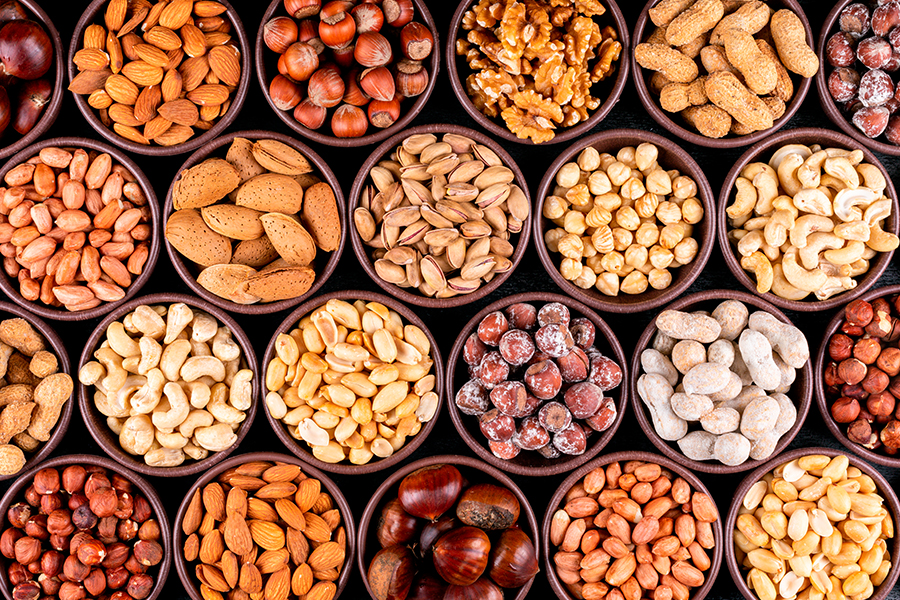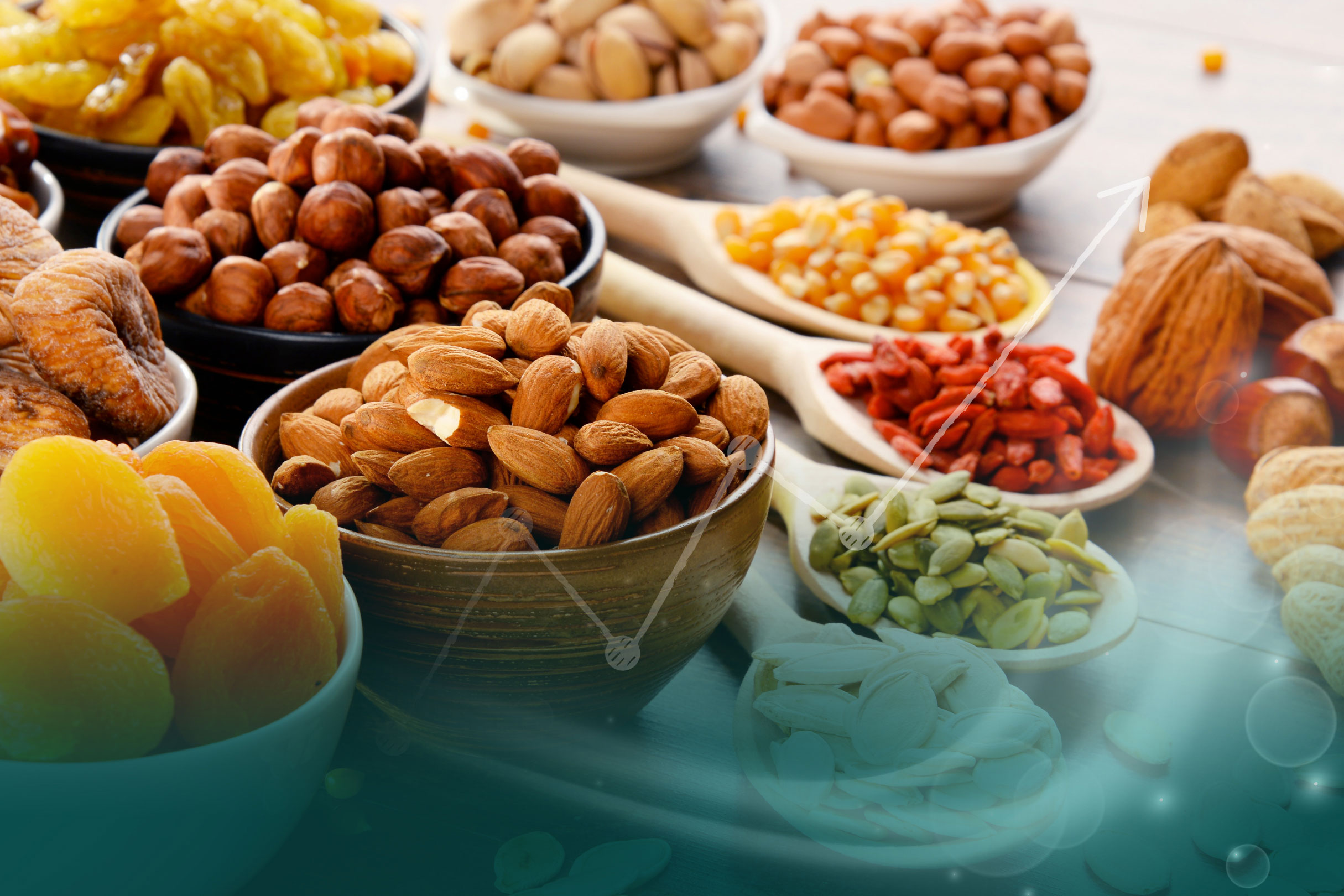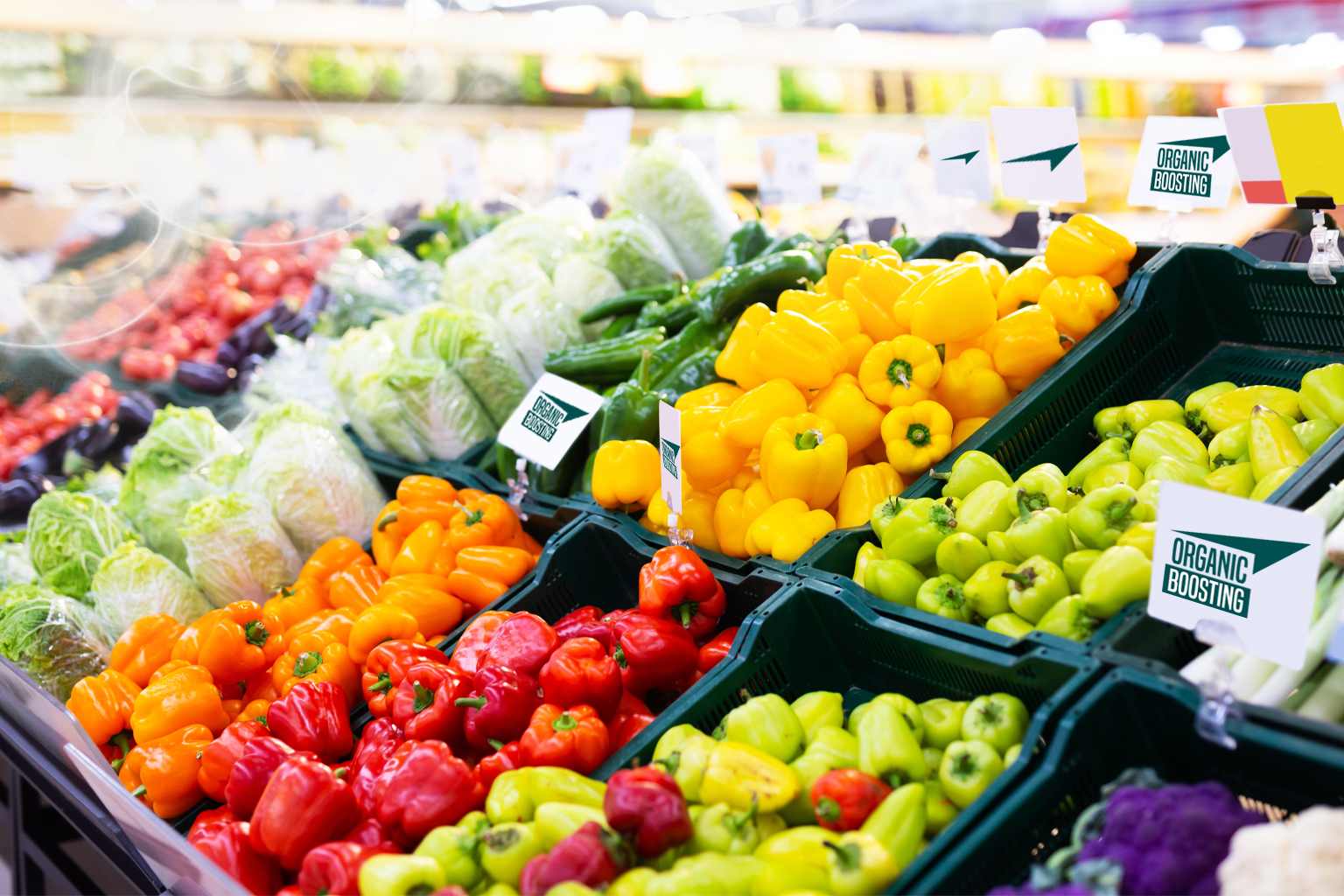Going Nuts in the Middle East! Learn about the History and Evolution of the Sector, Best-Selling Products and More!
Have you ever wondered what the best-selling nuts in the Middle East are? Nuts have been an important part of the diet in this region for centuries, being used in a variety of dishes to add flavor and nutrients. Over time, the demand for nuts in the Middle East has increased due to their growing popularity amongst consumers, partly prompted by a greater awareness of the health benefits they provide. In recent years, organic nuts have gained ground over conventional ones. Would you like to know more about the history and evolution of this sector? Fancy discovering the differences between conventional and organic nuts? How about looking at scientific studies on organic nuts and learning about their use in Arab cuisine? Then read on!
The history and evolution of nut consumption in the Middle East:
Nut consumption in this region is believed to have started as a way for people to sustain themselves during times of food scarcity, and has continued to be an integral part of the Middle Eastern diet ever since.
A recent study conducted by the Middle Eastern Organic Nut Association (OMENRA) found that the consumption of organic nuts in the region has increased by 10% in the last five years. In addition, a market analysis carried out by the Middle Eastern Organic Nut Research Center (CROMEN) indicates that demand for these products will continue to increase in coming years due to a growing awareness of the importance of healthy, sustainable eating. These findings show that the consumption of organic nuts in the Middle East is a growing trend and is expected to continue to expand in the future.
Conventional vs. organic nuts:
Conventional nuts are those that may include the use of synthetic fertilizers and pesticides in their production, while organic nuts are those that are produced without these chemicals. Therefore, organic nuts are healthier and more sustainable than conventional ones.
Organic nuts do not contain residues of synthetic fertilizers or pesticides, making them safer to consume. In addition, organic agriculture is more environmentally friendly and promotes biodiversity.
However, organic nuts are often more expensive than conventional ones due to the additional costs associated with their production.
The supply of organic nuts in the Middle East may be limited compared to the supply of conventional nuts.
Organic Boosting, from its position as an export partner to supermarkets, pharmacies, restaurants, cafes, and hotels, works towards solving these last two issues. Our services help our clients save time and money, enabling them to reduce the price of products for the end consumer. Find out more about the benefits of working with us here.
Scientific studies on the benefits of organic nuts:
A study published in the journal Nutrients in 2018 found that organic nuts contain higher levels of antioxidants and lower levels of heavy metals than conventional nuts.
Antioxidants are important for human health as they help prevent cellular damage caused by free radicals. Heavy metals, on the other hand, can be harmful to human health if consumed in large quantities.
Another study published in the journal Nutrients in 2019 found that nuts produced through organic agriculture have a healthier lipid profile than conventional ones. This means they contain higher levels of healthy fats and lower levels of trans and saturated fats, helping to reduce the risk of heart disease and other chronic diseases.
The most popular nuts in the Middle East
The most popular nuts in the Middle East are almonds, pistachios, and walnuts. These nuts are highly prized in the region for their taste and health benefits. Almonds, for example, are rich in vitamin E and healthy fats that can help reduce cholesterol and improve heart health. Pistachios are an excellent source of protein and essential nutrients such as iron and zinc, while walnuts are a good source of omega-3 fatty acids and antioxidants that can help protect the body from damage caused by free radicals. These nuts are very popular in the region and are used in a variety of dishes to add flavor and nutrients.
In addition to almonds, pistachios, and walnuts, other popular nuts in the Middle East include peanuts, cashews, and hazelnuts. Peanuts provide a rich source of protein and healthy fats that can help maintain a healthy weight. Cashews are a good source of antioxidants and B-vitamins, which are important for the health of the nervous system. Hazelnuts are an excellent source of vitamin E and healthy fats that can help improve heart health. Mixed nuts – which offer a combination of flavors and nutrients from a variety of nuts – are also common. These mixed nuts are a healthy and delicious option to enjoy as a snack or as an ingredient in various dishes.
Nuts in Middle-Eastern recipes
Nuts are a highly versatile ingredient and are used in a variety of dishes in the Middle East – the region comprising the following countries: Afghanistan, Saudi Arabia, Bahrain, Cyprus, Egypt, United Arab Emirates, Iran, Iraq, Israel, Jordan, Kuwait, Lebanon, Oman, Pakistan, Qatar, Syria, Turkey, and Yemen. This list may vary depending on the source and the exact definition of the Middle East. Some sources may also include Armenia, Azerbaijan, Georgia, Turkmenistan, and Uzbekistan as part of the Middle East.
Some popular Middle Eastern dishes which include nuts are tabbouleh, a traditional salad made with onion, tomato, parsley, and bulgur wheat; falafel, deep-fried balls made with chickpeas; hummus, a chickpea and tahini (sesame paste) paste; and baklava, a sweet pastry made with filo dough and filled with nuts and honey. It is also common to use nuts as a condiment in meat and vegetable dishes. For example, pistachios and chopped almonds are often added to lamb meat, while nuts and raisins are frequently used in chicken and rice.
We hope this blog post has helped you learn more about the nut industry in the Middle East. If you’d like to know more about the advantages we offer our customers, please don’t hesitate to contact us. Our experts will be happy to assist you if you’re thinking of developing your own private label or buying organic products.






